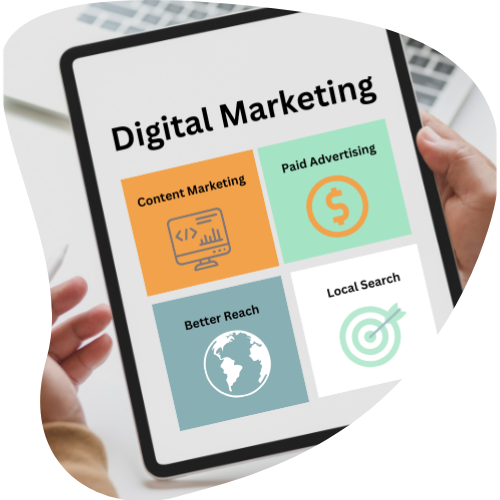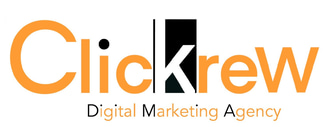The Ultimate Digital Marketing Guide 2024
In today’s digitally driven world, mastering digital marketing is crucial for any business striving for success. This comprehensive guide will walk you through the essential aspects of digital marketing, from fundamental principles to advanced strategies.


In today’s digitally driven world, mastering digital marketing is crucial for any business striving for success. This comprehensive guide will walk you through the essential aspects of digital marketing, from fundamental principles to advanced strategies.
Introduction to Digital Marketing
Digital marketing encompasses all marketing efforts that use the internet or electronic devices. It includes channels like search engines, social media, email, and websites to connect with current and prospective customers. Unlike traditional marketing, digital marketing enables businesses to reach a global audience with measurable results.
The Core Components of Digital Marketing
1. Search Engine Optimization (SEO)
SEO involves optimizing your website to rank higher on search engine results pages (SERPs), thereby increasing organic traffic. Key aspects include keyword research, on-page SEO (like meta tags, headings, and content), and off-page SEO (like backlinks and social signals).
Voice Search Optimization: With the rise of virtual assistants like Siri and Alexa, optimizing for voice search is crucial.
Local SEO: Essential for businesses with physical locations. It helps you appear in local searches, driving foot traffic and local engagement.
Mobile Optimization: Ensure your website is mobile-friendly since a significant portion of internet users access the web via mobile devices.
2. Content Marketing
Content marketing focuses on creating and distributing valuable, relevant content to attract and engage a target audience. It includes blog posts, infographics, videos, podcasts, and more.
Blogging: Regularly update your blog with high-quality content.
Video Marketing: Leverage platforms like YouTube to reach a broader audience.
Infographics: Use visual content to simplify complex information and enhance engagement.
3. Social Media Marketing
Social media platforms (like Facebook, Instagram, Twitter, and LinkedIn) are powerful tools for connecting with your audience. They offer unique ways to engage, inform, and entertain your customers.
Consistent Posting: Maintain a regular posting schedule to keep your audience engaged.
Interactive Content: Use polls, quizzes, and live videos to interact with your audience.
Influencer Partnerships: Collaborate with influencers to reach new audiences and build credibility.
4. Pay-Per-Click Advertising (PPC)
PPC advertising allows you to place ads on search engines and social media platforms. You pay only when someone clicks on your ad, making it a cost-effective way to drive targeted traffic.
Keyword Targeting: Use relevant keywords to reach your target audience.
Ad Copy: Craft compelling ad copy that entices clicks.
Landing Pages: Ensure your landing pages are optimized for conversions.
5. Email Marketing
Email marketing is a powerful tool for nurturing relationships with your audience. It involves sending targeted emails to your subscribers to keep them informed and engaged.
Segmentation: Segment your email list based on demographics, behavior, and preferences.
Personalization: Personalize your emails to make them more relevant.
Automation: Use automated email sequences to save time and improve efficiency.
6. Affiliate Marketing
Affiliate marketing involves partnering with other businesses or influencers who promote your products in exchange for a commission on sales. It’s an effective way to expand your reach and drive sales without upfront costs.
Choose the Right Affiliates: Partner with affiliates who align with your brand and have a relevant audience.
Track Performance: Monitor your affiliate campaigns to ensure they are delivering results.
Provide Resources: Equip your affiliates with the tools and resources they need to succeed.\
7. Influencer Marketing
Influencer marketing leverages the reach and credibility of influencers to promote your products or services. It’s a powerful way to build brand awareness and drive engagement.
dentify Relevant Influencers: Find influencers who resonate with your target audience.
Build Relationships: Develop genuine relationships with influencers to ensure authentic promotion.
Measure ROI: Track the performance of your influencer campaigns to measure their effectiveness.
How to Conduct Keyword Research
Keyword research is the foundation of any successful digital marketing strategy. It involves identifying the keywords and phrases your target audience is using to search for products or services like yours.
Steps to Conduct Keyword Research
Brainstorm Seed Keywords: Start with broad terms related to your business.
Use Keyword Tools: Leverage tools like Google Keyword Planner, Ahrefs, and SEMrush to find relevant keywords.
Analyze Competitors: Look at what keywords your competitors are ranking for.
Long-Tail Keywords: Focus on long-tail keywords that are less competitive but highly relevant.
Evaluate Search Intent: Understand the intent behind each keyword to ensure it aligns with your content strategy.
On-Page vs. Off-Page SEO: What’s the Difference?
Understanding the difference between on-page and off-page SEO is crucial for a well-rounded SEO strategy.
On-Page SEO
On-page SEO refers to the optimization of individual web pages to rank higher and earn more relevant traffic. Key elements include:
Content Quality: Ensure your content is high-quality, relevant, and informative.
Meta Tags: Use descriptive and keyword-rich meta titles and descriptions.
Headings: Structure your content with headings (H1, H2, H3) to improve readability.
URL Structure: Use clear and concise URLs that reflect the content of the page.
Internal Linking: Link to other relevant pages on your site to improve navigation and SEO.
Off-Page SEO
Off-page SEO involves activities that happen outside your website to improve its ranking. Key elements include:
Backlinks: Acquire high-quality backlinks from reputable sites.
Social Signals: Engage with your audience on social media to drive traffic and improve visibility.
Guest Blogging: Write articles for other websites to build authority and gain backlinks.
Online Reviews: Encourage positive reviews on platforms like Google My Business to boost your reputation.
SEO Tools Every Entrepreneur Should Know
Having the right SEO tools can make a significant difference in your digital marketing efforts. Here are some essential tools:
Google Analytics: Track and analyze your website traffic and user behavior.
Google Search Console: Monitor and troubleshoot your site’s presence in Google search results.
Ahrefs: Comprehensive tool for keyword research, backlink analysis, and competitor insights.
SEMrush: All-in-one tool for SEO, PPC, and content marketing.
Moz: Provides keyword research, link building, and site audit tools.
Yoast SEO: WordPress plugin that helps you optimize your website content for SEO.
SEO Metrics to Track Your Progress
To measure the success of your SEO efforts, it's crucial to track key metrics. Here are some important ones:
Organic Traffic: Monitor the number of visitors coming to your site from search engines.
Bounce Rate: Understand how many visitors leave your site after viewing only one page.
Conversion Rate: Track the percentage of visitors who take a desired action, like making a purchase or signing up for a newsletter.
Keyword Rankings: Keep track of where your site ranks for targeted keywords.
Backlink Profile: Analyze the quantity and quality of sites linking back to your content.
Pages Per Session: Measure how many pages visitors view during a single session on your site.
Average Session Duration: Track how long visitors stay on your site, which can indicate content engagement.
Conclusion
Digital marketing is a dynamic and ever-evolving field. By understanding and mastering these core components, you can create a robust digital marketing strategy that drives traffic, engages your audience, and boosts your bottom line. Whether you’re just starting or looking to refine your approach, this guide provides the foundation you need to succeed in the digital landscape.
Ready to take your digital marketing to the next level? Start implementing these strategies today and watch your business thrive!
